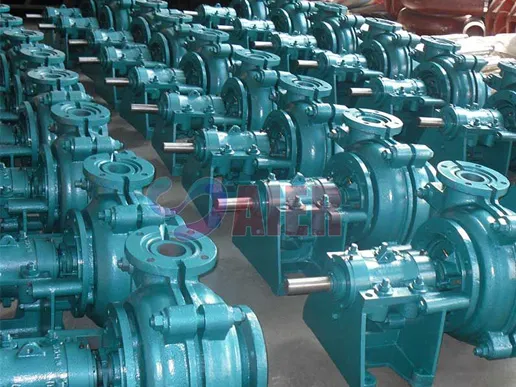Dec . 14, 2024 23:00 Back to list
impeller of slurry pump
Impeller of Slurry Pump Essential Insights and Considerations
The impeller is a crucial component of slurry pumps, which are widely used in industries such as mining, construction, and wastewater treatment. These pumps are specifically designed to handle slurries—mixtures of liquids and solids—where conventional pumps might fail. Understanding the role and design of impellers in slurry pumps is key to optimizing performance and ensuring longevity.
What is a Slurry Pump?
A slurry pump is a type of pump that is engineered to transport slurries, which consist of liquid mixed with solid particles. These pumps are vital in processes where solid materials need to be moved along with liquids, such as transporting ores, wastewater, cement, and coal slurries. Common applications include mineral processing, sewage treatment, and handling of dredged materials. The unique challenges associated with pumping slurries—like viscosity, particle size, and concentration—necessitate specialized pump designs.
The Role of the Impeller
The impeller is the heart of the slurry pump. It is a rotating component that transfers energy to the slurry, causing it to flow. The primary function of the impeller is to convert mechanical energy from the motor into kinetic energy in the fluid. This is achieved through a series of blades that propel the slurry, generating pressure and directing the flow towards the discharge of the pump.
One of the primary challenges with slurry pumps is handling the abrasive nature of the solids they transport. The impeller must be robust enough to withstand wear and tear caused by the solid particles, which can be highly abrasive and corrosive. Therefore, materials used in impeller construction are critical. Common materials include hardened steel, stainless steel, and specialty alloys that provide enhanced wear resistance.
Impeller Design Considerations
impeller of slurry pump

1. Impeller Type There are various designs of impellers used in slurry pumps—open, closed, and semi-closed impellers, each suitable for different applications. Open impellers have blades but no shroud, making them advantageous for applications with large particles. Closed impellers, which have blades between two shrouds, provide better efficiency and are ideal for finer slurries. Semi-closed impellers strike a balance between performance and handling particle size.
2. Diameter and Width The diameter of the impeller affects the flow rate and pressure output of the slurry pump. Larger impellers typically move more fluid but may struggle with high-viscosity slurries. The impeller width also plays a critical role, impacting the pump’s efficiency and its ability to handle solids.
3. Blade Design The shape and angle of the impeller blades influence the pump’s performance. Blades designed with specific angles can optimize fluid flow and minimize turbulence, which can lead to wear and energy losses. Additionally, the number of blades affects the pump’s efficiency; more blades generally result in smoother operations but can also increase resistance.
4. Wear Resistance Since slurry pumps often deal with abrasive materials, the wear resistance of the impeller is paramount. Many manufacturers enhance impeller materials with coatings or by employing wear-resistant alloys to extend the lifespan of the component. This is essential to reduce maintenance costs and downtime in industrial applications.
5. Hydraulic Design The hydraulic design of an impeller also plays a vital role in the efficiency of a slurry pump. Proper hydraulic modeling can minimize energy consumption and prevent issues like cavitation, which can greatly damage the pump and reduce performance.
Conclusion
The impeller in a slurry pump is essential for its operation and effectiveness in transporting mixed materials. Its design and construction must consider the specific demands of the slurry being pumped, including the size and abrasive nature of solids. Understanding these factors can lead to better pump selection, improved efficiency, and enhanced longevity of slurry pumps. In industries relying on the effective handling of slurries, investing in high-quality impeller designs can significantly contribute to operational success and reduced total lifespan costs. As industries evolve and increase demands, continuous advancements in impeller technology will be vital in meeting these challenges effectively.
-
Wholesale Casting Dredge Pump Part - High Quality China Manufacturers & Suppliers
NewsJul.04,2025
-
High Quality Slurry Pump Seals Reliable China Suppliers & Manufacturers
NewsJun.24,2025
-
High Quality Portable Submersible Slurry Pump Supplier & Manufacturer from China
NewsJun.10,2025
-
Slurry Pump Parts Manufacturer – High Quality Rubber Spare Parts from China
NewsJun.10,2025
-
High Quality 1/3 HP Submersible Sump Pump with Vertical - Reliable Supplier & Factory Price
NewsJun.10,2025
-
High-Efficiency Centrifugal Slurry Pumps India
NewsJun.10,2025
